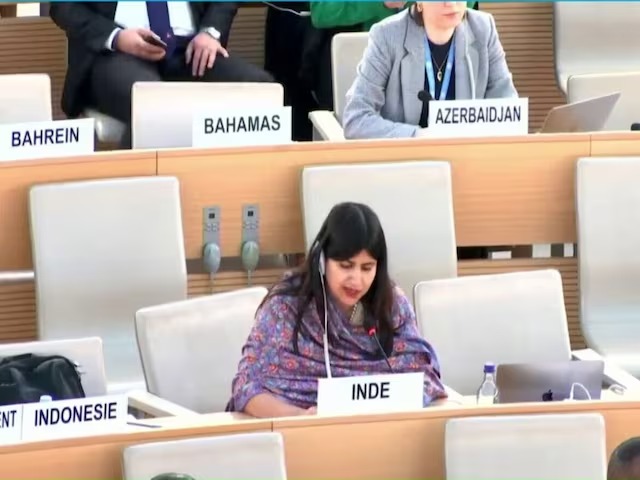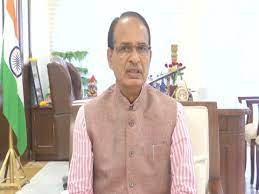Opinion | What About Hinduphobia, Dear United Nations?
India has shook up the United Nations in a daring action that resonates with the feelings of millions of people. India’s decision to abstain from voting on a draft resolution presented by Pakistan and supported by China at the recent UN General Assembly session has ignited a heated discussion amid the global focus on countering Islamophobia. What’s making headlines, however, isn’t what India did so much as the pressing issue it raises: What about Hinduphobia?

India has sent a strong statement to the world on religious intolerance by calling attention to the prejudice faced by Sikhs, Buddhists, Hindus, and other faiths.
Let’s go to the core of this hotly debated topic and investigate why the UN’s narrow emphasis could be ignoring a more comprehensive, inclusive strategy to counteract religious discrimination.
TS Tirumurti, the former head of the UN Security Council’s Counter-terrorism Committee, continued India’s long-standing lobbying by raising concerns about the UN’s limited attention to religious phobias. He drew attention to the fact that the seventh revision of the Global Counter-Terrorism Strategy, which was approved in June 2021, ignored new kinds of religious prejudice against Sikhs, Hindus, and Buddhists in favor of focusing primarily on Islamophobia, Christianophobia, and Judeophobia. This appeal for attention highlights an ongoing need for inclusion in the fight against religious discrimination, which is consistent with India’s recent position at the UN General Assembly (UNGA).
A stark contrast is brought up by the recent UNGA resolution denouncing Islamophobia, which was co-sponsored by China and Pakistan. How can countries supporting this resolution ignore their own flagrant breaches of human rights, especially those committed against their Muslim populations? The pretense of caring about Islamophobia serves as a handy cover for the reality of Jihad-related terrorism and state-sponsored persecution, as is shown by Pakistan’s support of extremist Islamic terrorist groups.
Under the guise of communist principles, the religious liberties of some 25 million Muslims in China are being severely curtailed. This encompasses a number of ethnic groups, including Tatars, Hui, Uyghurs, and Kazakhs. Western democracies have condemned the Chinese government’s practices, notably in Xinjiang, and have accused them of genocide. Pakistan and other Muslim-majority nations have said very little in spite of this. This glaring disparity draws attention to the hypocrisy of the international reaction to violations of human rights. As China represses Muslim rights, other Muslim countries do little.
However, the duplicity doesn’t stop there. The world pays little attention to the situation of Hindus in Pakistan and Bangladesh, while it is fixated on Islamophobia. Hard data presents a dismal image: For many years, the Hindu community in Pakistan has endured institutionalized violence and religious persecution. The minority groups are plagued by documented acts of rape, killings, and forced conversions. From almost 23% in 1947 to only 6% in 2017, the Hindu population in Pakistan has severely decreased, mostly as a result of forced conversions, tyranny, and repression in the Islamic country. An estimated 1,000 non-Muslim girls are forced to convert to Islam in Pakistan each year, according to research by the Movement for Solidarity and Peace. In certain areas of the country, such as Sindh, the rate is as high as 20 females every month.
Additionally, according to a US government commission assessment, textbooks in Pakistani schools promote bigotry and intolerance toward Hindus and other religious minorities, and the majority of instructors see non-Muslims as “enemies of Islam.” Extremist supporters have often assassinated religious minorities and anyone strong enough to speak out against bigotry, apparently with no repercussions. Pakistan is the third most intolerant nation in the world, according to a 2011 Pew Research Center report, which emphasizes the country’s deeply embedded hard-line Islam and concerning support for terrorism. In Pakistan, Hindus are mostly missing from the highest ranks of the armed forces, administration, and bureaucracy. Institutions of higher learning, religious dogma, and the state-run media all support prejudice and discrimination against them.
Bangladesh’s predicament is comparable to Pakistan’s slide toward religious fanaticism. The Hindu community has been the subject of violent attacks, forced relocation, and arbitrary property seizures due to the development of extremist Islam. Just in 2022, 154 Hindus lost their lives, and 39 Hindu women who had been sexually assaulted also perished. Radical Islamists have a two-pronged approach, gradually eradicating Hindus inside their own boundaries while recruiting Muslims from Bangladesh into India. According to reports, Bangladesh’s Hindu population may be completely eradicated in a few decades if no action is taken, a terrifying possibility that the world community has chosen to overlook.
The UN’s silence on Hinduphobia is deafening in light of this persecution and suffering. The harsh issue of the UN’s commitment to protecting the rights of all religious minorities is raised by the striking gap in international attention given the systemic discrimination and violence Hindus continue to experience. It’s time for the international community to own up to its role in the continuation of religious discrimination and hold those who represent human rights on the international scene accountable.
In the current era of excessive political correctness, any critique of Islam or even just a comment on how Muslims behave as a group is quickly labeled as Islamophobic. Report a crime carried out by radical Islamists? Islamophobia. Absolve the bigoted minority of their violent actions? Islamophobia. Show contempt for threats of death, beheading, and rape? It’s Islamophobia all over again, a wave of dismissal that suggests some chaos and violence are OK in the name of democratic debate. But if you attempt to challenge this insanity, you’ll be called an Islamophobe all of a sudden.
What precisely is Islamophobia, then? Is it a true phenomenon, or is it simply a weaponized phrase used to silence critics and block honest conversation? Its definition is intentionally vague in order to confound and mislead by combining several complaints under one handy heading. Is it discrimination? Not at all, as Muslims are people of all racial origins. Is this dread unfounded? Maybe, but the term loses impact when legitimate worries are rejected out of hand.
Furthermore, Islamophobia has subtle consequences that shift the burden of evidence to the accused and portray criticism as fundamentally bigoted or unfair. It is unjust to wrongly associate reasonable criticisms of Islamic doctrines with prejudice, which silences dissent and stifles critical thought. Why is Islamophobia so well-known, whereas phobias of other religions, such as Buddhism, Judaism, and Hinduism, are less well-known? The answer is found in its ability to be used as a stick with which to beat anybody who dared to challenge the status quo.
Actually, Islamophobia is nothing more than a catch-all term used alongside hate speech to demonize opponents and silence reasonable criticism. It suppresses open communication and confines reasoned conversation to the domain of hate speech and intolerance. It’s time to expose the reality behind the mask of political correctness: the word “Islamophobia” is a weapon used to stifle criticism and hide official beliefs from critical examination.
It’s time to free reasoned speech from the constraints of fear and censorship and to hold all views, religious or not, accountable without showing preference or fear.
I feel obliged to challenge the narrative that portrays India as Islamophobic since I am an Indian Muslim woman. Given that there are more than 200 million Muslims in the country, can it really be said that they are a minority given their vast numbers? It is a stark indictment of the purported equality of treatment for all Indians because Muslims are considered a “protected group,” but Hindus are consigned to a “unprotected” position.
Talks about hate crimes and scare tactics glaringly ignore the predicament of Hindus in places like Bangladesh, Pakistan, Afghanistan, and the Kashmir Valley. Cherry-picked figures that support a misleading narrative of minority victimization in India obscure the ethnic cleansing, kidnapping, forced conversion, and prejudice against Hindus and other minorities that occur in these regions.
Among the 56 countries with a majority of Muslims, none has achieved the peaceful cohabitation of all Islamic sects like India does. This makes India a shining example of religious tolerance. However, India is the one that is unfairly accused of being anti-Islamic, often by nations such as Pakistan, which is infamous for encouraging terrorism and spreading anti-Hindu sentiment.
It is important to remember that India has never engaged in invasions, supported violent jihad, or encouraged genocide. Rather, bigotry and colonial exploitation have been its victims. It is the height of hypocrisy to criticize India for protecting its borders and national security from international terrorists.
India’s dedication to secularism is shown by the absence of religious discrimination in employment within its official institutions. The military forces, which include individuals from a variety of religious backgrounds, are a prime illustration of secularism. Without any Hindu-centric government efforts, India has had prime ministers and presidents who are Muslims and Sikhs.
I thus pose this question to the UN: What about Hinduphobia? Let’s resist the temptation to engage in selective indignation in the pursuit of justice and equality. The underlying Hinduphobia that penetrates worldwide debate has to be acknowledged and addressed, and it is imperative that all voices—including those of Hindu minorities—are heard and respected.







